EORI number: what's it for and how to get it ?
Any business that imports or exports goods outside the European Union must have an EORI number. This code—often misunderstood or overlooked by SME leaders—is essential to avoid customs delays. Here’s a clear and comprehensive guide to understanding what it does, and how to get it quickly.
What Is the EORI Number?
Thinking of importing or exporting goods outside the EU? Then there’s one essential key you must not forget: the EORI number.
Behind this slightly cold acronym – EORI stands for Economic Operators Registration and Identification – lies a unique customs identification number, assigned to any company engaged in international trade. Think of it as your company’s official customs ID, but at a European level.
This number is mandatory for any customs clearance operation, whether for import or export, the moment your goods cross EU borders. Without it? You can’t legally pass customs. Your goods get blocked, and the problems begin…
But the EORI number does more than just open the gates. It also helps streamline your administrative procedures (yes, really!) and centralize your customs information. Once issued, this number is recognized by all EU customs authorities. The result: smoother logistics, faster controls, and significant time savings.
Bottom line: if you’re targeting international markets, the EORI number isn’t just another bureaucratic detail—it’s a non-negotiable requirement to keep your supply chain running smoothly. And the good news? It’s free, simple to obtain, and done directly with your national customs authority.
So—what are you waiting for?
Why Is It So Essential?
Found a supplier in China? Preparing your first shipment to the Middle East? Great. But beware: without an EORI number, everything can quickly unravel.
This small code—so easy to get—is required for any commercial activity outside the EU. Whether you’re importing, exporting, or just transiting through an international logistics hub, it’s absolutely critical.
And without it? Here’s what might (and likely will) happen:
- Your goods may be held up at customs, sometimes for several days.
- You face delivery delays, unexpected penalties, or additional fees.
- Your logistics partners get stuck—they can’t complete the necessary formalities.
At TBI, we see it regularly: ambitious SMEs losing valuable time—and sometimes opportunities—over this simple, overlooked formality. Frustrating, right?
But it’s easily resolved. With the right guidance, getting an EORI number can be quick, free, and hassle-free.
Lesson learned? Better to prepare than to fix. If you have an international project in mind, take a moment to check your status. This small action could save you from major customs blocks later.
And if you’re unsure—we’re here to help. That’s exactly what we do.
What Does an EORI Number Look Like?
In France, there’s no need to memorize a brand-new number: your EORI number is directly tied to your SIRET number. Pretty convenient, right?
Practically speaking, it’s simply your SIRET number with the FR country prefix in front.
Example: If your company’s SIRET is 123 456 789 00012, then your EORI will be FR12345678900012.
This format allows French and EU customs authorities to instantly recognize your business. Thanks to this standardized structure, your company is clearly identified—crucial when your goods need to cross borders without delay.
Another benefit: if you’re already registered in France and just starting to go international, you already have everything you need. Just request the number once—it remains valid across the entire European Union.
In short: no mystery, no useless paperwork, just a simple, logical, and essential identifier.
Still unsure about your number or the process? We can check it for you in no time.
How to Get Your EORI Number
Good news: you don’t need to break the bank or drown in paperwork to get your EORI number. In France, the process is 100% free, and can be completed in just a few clicks.
Here’s how to do it—step by step:
1. Make sure you’re registered in France
That means having an active SIRET number. Without this, you can’t apply.
2. Go to the official website: douane.gouv.fr
Everything happens online, through the French customs portal.
3. Access the SOPRANO platform
This is where you’ll fill out the request form. Don’t worry—it’s simple: a few admin details, nothing too technical.
4. What happens next?
Once your request is submitted, customs usually process it within 24 to 72 hours. You’ll receive your EORI number by email. Fast, right?
👉 Prefer not to handle it yourself? No problem.
At TBI, our customs experts can support you from A to Z. We do this all the time—especially for companies making their first international shipment. The result: you save time, avoid mistakes, and start exporting with peace of mind.
What to Do With Your EORI Number?
Once you have your EORI number, don’t just file it away. It becomes a core part of all your international trade operations. In short: it must appear on all your documents related to non-EU exchanges.
Here’s where to include it:
- On all customs declarations – this is essential. Without it, nothing moves.
- On your commercial documents: invoices, bills of lading, transport documents… everything that travels with or represents your goods.
- In any communication with customs authorities: requests, audits, status updates.
And don’t forget to share it with your freight forwarder or customs broker before your first shipment. They handle the actual clearance process—having the correct EORI upfront helps everything go faster.
At TBI, we’re proactive: once a client receives their EORI, we link it to their file right away. No need to think about it again—it’s automated, smooth, and secure.
A simple step that prevents a lot of headaches later.
Bottom line: once you’ve got it, use it everywhere, share it well, and let it do its job—simplifying your international operations.
FAQs
1. My business only imports occasionally. Do I still need an EORI?
Yes. Any non-EU customs operation, even a one-time shipment, requires an EORI number.
2. I’m a sole trader. Does this apply to me?
Yes. If you import or export goods outside the EU, you must have an EORI number—even as a sole proprietor or micro-entrepreneur.
3. How long does it take to get an EORI number?
Between 1 and 3 business days, depending on how quickly customs process the request. It’s free.
4. Can I use the same EORI number across multiple countries?
Yes. The EORI number is valid throughout the entire European Union.
5. Can TBI help me obtain an EORI number?
Absolutely. Our team offers free support to help you get your EORI number for your first international shipments. We’ll guide you through the process and make sure it’s done right.

